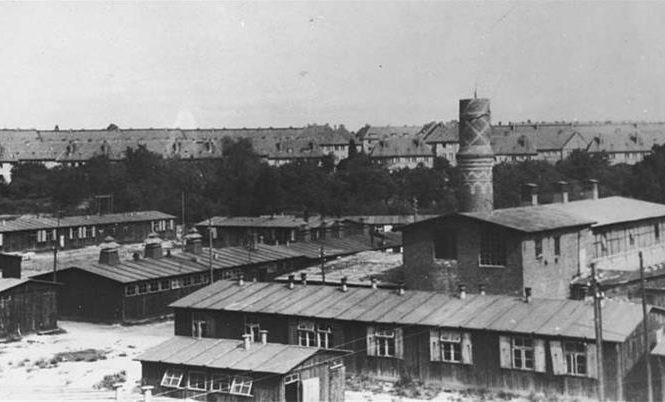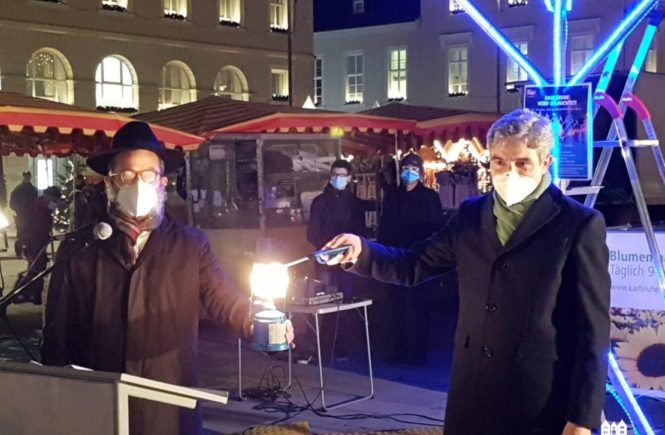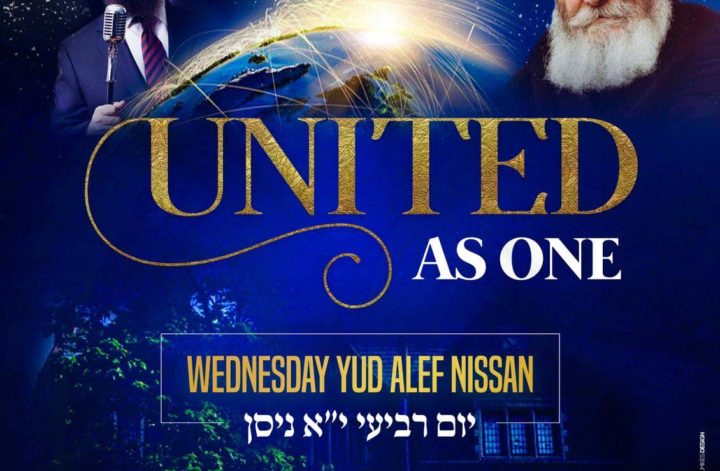Tired, starved, and downtrodden, we Jewish prisoners plodded into the barracks where we spent a few miserable hours on hard bunks before another day of backbreaking labor. We were too exhausted to think, but when our minds wandered back to times long gone, we could not help but wonder if it had all been a dream. Would we ever live again as we once had, before our parents and children had been murdered, and we were dropped into an unending hellish existence where death seemed to be a welcome (and inevitable) reprieve?
It was Purim eve, but what was there for us to celebrate in the German concentration camp of Gross-Rosen?
Suddenly, one of us leaped down from his small space on the bunk and began an impassioned speech that will forever remain in my memory:
“My fellow Jews,” he called out, “dear brothers in suffering! Today is our Purim, when we remember the miracles G‑d did for our ancestors. He who dwells in Heaven saved our nation from being decimated. The enemy fell into the pit that he himself had dug. Today we once again have a double-edged sword pressed against our necks. Our enemies are trying to destroy us, but do not allow terror into your hearts! The Haman of our day, Hitler and his lackeys, will not be able to overcome G‑d’s chosen nation. The eternity of Israel will not lie. The bells of freedom are already ringing in the distance. We will yet live to see justice meted out against our enemies, just like our ancestors in Shushan of old. Be strong, brothers, the Jewish nation lives on!”
Beads of sweat appeared on his face. His lips trembled, his eyes glinted, but he said no more.
Then another prisoner jumped down from his bunk and took his place next to the orator. Sweetly, with a voice laden with nostalgia and hope, he sang the words of the blessing said after the Megillah reading, in which we thank G‑d “Who fights our battles and pays comeuppance to our mortal enemies.”
As the rest of us absorbed the last echoes of the tune, the two men lithely climbed back into their spots on the tiered bunking and silence reigned once again.
In our minds, we were blissfully transported back to the happy Purims of years past, but we knew the joy would not last.
The following morning, the block commander stormed into the barrack: “Cursed Jews!” he shouted. “Last night someone here spoke disparagingly of our Führer. Tell me who it was! If I do not know who it was, you will all be punished before the day is done!”
His words were met with defiant silence.
His face appeared angrier, and his voice became louder. “Dirty Jews!” he called our shrilly. “I am giving you 10 minutes to identify last night’s speakers. Make no mistake about it, your lives are on the line.”
Ten minutes passed, and no one uttered a word.
“Run, swine, run!” the commander barked, and we Jews began to run as fast as we could, while the guards rained down a shower of rifle butts and whips upon our heads and backs.
“Quick, quick,” they shouted as rivers of blood spurted from our heads and our arms. Our backs sagged and our feet ached.
But we had only one fear: that last night’s brave performers, who had gifted us with hope and courage, would give themselves up in order to save us from further suffering. One even tried to run out of line to identify himself, but his neighbors didn’t allow it. “No, no,” they hissed with clenched teeth, “Stay strong. We are all responsible for one another.”
I have no way of recalling how long this went on, because every moment felt like eternity. We ran with our last strength, panting, with no air to breathe. Our tongues hung out, and tears mingled with sweat on our cheeks. But no one even considered ratting on the heroes of the previous night.
Yes, even the prisoners of Gross-Rosen merited their own Purim miracle—two miracles, actually: That no one dropped dead from the diabolic run we were forced to endure, and that we all had the courage to keep the identity of those two men secret.
The late Pinchas Menachem Feivlovitz was a Holocaust survivor who fought (and was wounded) in Israel’s war of independence. An adherent of the Gur Chassidic group, he devoted much of his energy to chronicling and telling the atrocities of the Holocaust, through his personal experiences of five years under Nazi rule. Together with his wife and fellow survivor Cipora (whom he met and married after liberation), he raised a family in Israel. At the time of his passing in 2007, he left behind dozens of descendants, devoted to Torah and Jewish life. This vignette was recorded by Feivlovitz in his (Hebrew) book, Odeni Zocher (I Still Recall).



